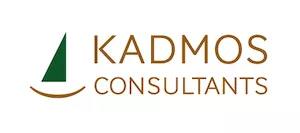- in United States
- with readers working within the Insurance industries
The newStatement of Changes to the Immigration Rules HC 733, includes the following changes to theSkilled Worker routeto be effective from 9 April 2025:
- Restrictions on recruitment of care workers from outside the UK
- Minimum salary threshold for care workers rising from £23,200 to £25,000 per year
- Rules on recovery from sponsored workers any loans or investments in the sponsoring business
Care Workers and Home Carers – preference to be given to workers who are already in the UK
Priority is to be given to workers who are already in the UK sponsored as care workers or home carers, and especially to those who lost employment through revocation of the sponsor licence of the previous sponsor. This requirement applies in England only and does not affect sponsors in Wales, Scotland or Northern Ireland.
International workers in Adult Social Care (ADS) are offeredsupport by the newly formed regional and sub-regional partnershipsacross England. Care workers are encouraged to report to these partnerships if they are affected by the licence revocation of the sponsor. Care workers whose employers lost their licence continue to have the right to work in the UK for at least 60 days after the revocation and regional agencies are formed to provide support in finding alternative employment, financial help and psychological support.
The employer will be required to get confirmation from the regional or sub-regional partnership regarding care workers looking for alternative employment. The employer will be required to confirm that no suitable worker was found through the relevant partnership and the same confirmation will have to be provided by the regional partnership. There is yet no information about the partnerships, but we expect it will be shared before the requirement comes into force.
Where the application is made for entry clearance, the requirement to check the local pool will apply even if the worker had previously been sponsored in this route.
Where the care worker is in the UK and is already sponsored as a care worker or is working for the employer as a care worker for the last three months, the employer does not have to check with the regional partnership.
For example, if the employee making an application for leave to remain as a skilled worker is holding a dependent visa or a student visa and is already working as a care worker for the sponsor, the sponsor will not need to check the local pool if the employee has been with them for three months, whether full time or part time. If the employee is leaving the UK and making an application for entry clearance, the employer will have to check with the regional partnership even if the timeline remains the same.
Recovery of loans, including relocation and immigration fees loans
The rules are unambiguous in that the employer cannot shift to the employee the cost of the sponsor licence application, the cost of assigning a certificate of sponsorship or the immigration skills charge. However, where the employer pays the visa fees and picks up the relocation cost, the money can be recovered from the employee, provided the following rules are met.
The new rule reads:
"SW 14.2A. Any money paid by the applicant to the sponsor (or a related organisation) will be considered as follows:
(a) The following payments will be subtracted from salary, unless (c) applies:
(i) deductions from salary; or
(ii) repayments of loans; or
(iii)investments.
(b) Any such subtractions will be averaged over the length of time the applicant is being sponsored for, for the purpose of salary considerations.
(c) Money will not be deducted where the payment is not related to business costs, immigration costs or investment, but rather an additional benefit offer which the applicant has a genuine choice whether to take up, for example salary sacrifice arrangements.".
The deductions from salary are not much different from the rules currently in place which state is paragraph SW 14.2 that salary does not include any payment relating to immigration costs, such as the fee or Immigration Health Surcharge. What is new, is how the salary threshold is to be calculated where some advance has been paid toward immigration fees.
The new rule says that he repayment scheme will be subtracted from salary and the subtraction will be averaged over the length of sponsorship. The salary after subtraction should meet the salary requirement defined by the relevant occupation code and the applicable minimum pay threshold.
For example, where the minimum salary requirement is £40,000 and the employer pays £5000 towards the visa fees which they expect to recover from the employee during the term of employment, the minimum salary for this employee rises depending on the period of sponsorship. If sponsored for two years, the minimum pay will be £42,500 per year (£5000 loan averaged over 2 yeas) or £41,000 per year if sponsored for five years (the amount of loan averaged over the 5 year period).
The loan can be recovered in a shorter term provided the worker is paid above the threshold thus calculated. However, where the worker is paid close to the applicable minimum and leaves employment early, there are no provisions allowing the employer to recover the loan from the final salary payment.
The arrangement is burdensome on both the employer and employee in that both have to pay tax and NI contribution in respect of the full amount of salary.
The provision related to investment will make self sponsorship more complicated. Self-sponsorship is possible under the current rules provided there is a genuine vacancy for the business owner or a major shareholder and the job is adequately remunerated.Explanatory memorandumstates that the purpose of the rule is to avoid abuse whereby the salary of the sponsored employee comes from their own funds. It is less clear how this restriction will work in practice and it is expected that a new guidance will address this in more detail. An example of difficulty is an investment-heavy business sponsoring the owner who made the initial investment. Self-sponsorship is possible under the current rules provided there is a genuine vacancy for the business owner or a major shareholder and the job is adequately remunerated.
Where the founder of the business invested £1 mln as the set up costs for the business, the new rules seem to require that this amount is spread evenly over the period of sponsorship and added to the proposed salary – a disproportionately onerous requirement especially in comparison with businesses which do no require a large start-up capital.
The content of this article is intended to provide a general guide to the subject matter. Specialist advice should be sought about your specific circumstances.


